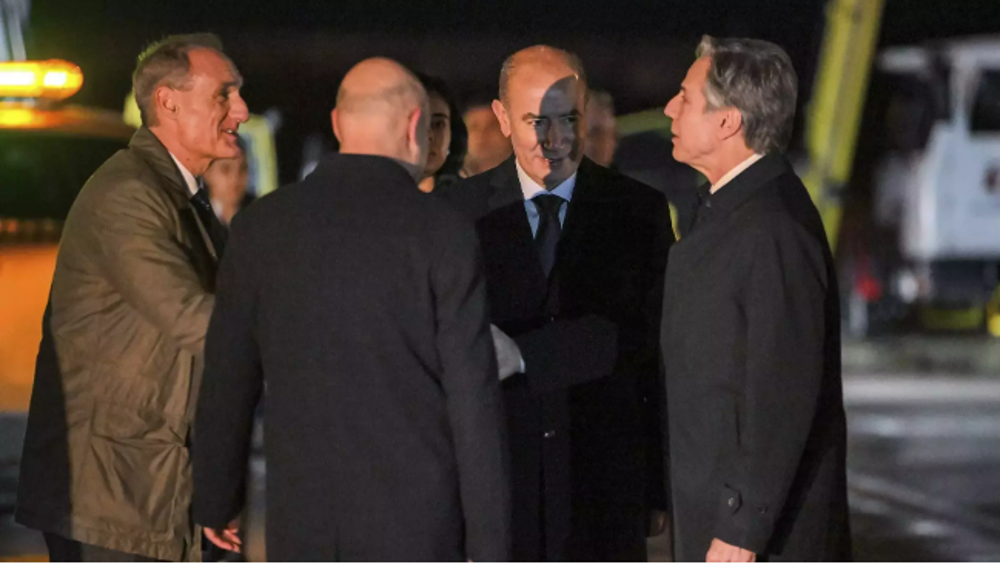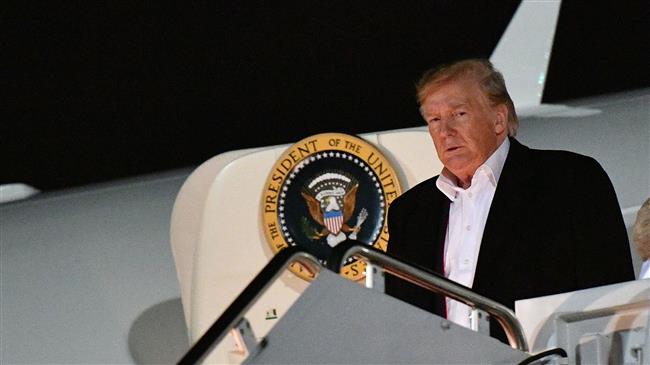Trump impeachment probe reveals new damning evidence
The Democratic-led impeachment inquiry of US President Donald Trump, which shifted to a public phase on Wednesday, revealed new evidence that the Republican leader was willing to sacrifice America's interests for his own.
The public hearings began Wednesday morning after weeks of closed-door interviews in the US House of Representatives, marking a new phase of the impeachment probe that could determine the fate of Trump’s tumultuous presidency.
Two top US diplomats, William Taylor and George Kent, delivered damning testimony on the first day of the public hearings, describing Trump's efforts to pressure Ukraine to investigate former US vice president Joe Biden, one of his main 2020 presidential rivals.
Taylor, the US Ambassador to Ukraine, testified that he was told Trump “cared more about” investigating Biden and improving his reelection chances than caring about US interests.
The veteran US diplomat, who testified in a closed hearing last month, said he become aware of a telephone call between Trump and the US Ambassador to the EU, Gordon Sondland, which a member of Taylor's staff overheard.
Taylor also said an "irregular policy channel" involving former New York mayor Rudy Giuliani, Trump's personal attorney, was pushing for the Ukrainian probe into the Bidens.
Trump dismissed the probe again as a "witch hunt" and said he was "too busy" to watch the first public hearings, during which he received strong support from Republican lawmakers.
Asked about the new allegations, while hosting Turkish President Recep Tayyip Erdogan at the White House, Trump replied: "First time I've heard it."
Democrats in the House launched an impeachment inquiry against Trump in September after a whistleblower alleged the Republican president pressured Ukrainian President Volodymyr Zelensky to investigate former Vice President Joe Biden and his son Hunter, who had served as a director for Ukrainian energy company Burisma.
Republicans sought to undercut the public hearing by focusing on Hunter Biden's role on the Burisma board, pointing out that he was paid $50,000 a month and questioning his qualifications.
Kent, the deputy assistant secretary of state for European and Eurasian affairs, said US presidents should ask other countries to engage in selective politically associated investigations.
"I believe he was looking to dig up political dirt against a potential rival in the next election cycle," Kent said.
The next hearing is scheduled for Friday. Eight more witnesses, including Sondland, are to appear next week, the second of several planned weeks of hearings.
The public hearings may pave the way for the Democratic-led House to approve articles of impeachment - formal charges - against Trump.
That would lead to a trial in the Senate on whether to convict Trump of those charges and remove him from office. Republicans control the upper chamber of Congress and have shown little support for Trump’s removal.
Only two American presidents have been impeached by the House, Andrew Johnson in 1868 and Bill Clinton in 1998. Neither Johnson nor Clinton was convicted by the Senate.
In 1974, then US President Richard Nixon resigned in the face of certain impeachment and removal from office over the Watergate scandal.
‘All wars have rules. All of those rules have been broken’ by Israel
VIDEO | Report flags India’s violation of rights of Rohingya detainees
Turkey's foreign minister meets Syria's de facto leader in Damascus
'Next to impossible' to rescue patients from Gaza's Kamal Adwan Hospital: Director
VIDEO | Vietnam current prosperity
Report blames gasoil exports for shortage at Iranian power plants
VIDEO | Hind Rajab Foundation names Israeli war criminals vacationing after Gaza genocide
VIDEO | Australians rally for Gaza ahead of Christmas festivities

















 This makes it easy to access the Press TV website
This makes it easy to access the Press TV website